
Online courses: 3 US credits/ course
Courses will be taught through Blackboard virtual classroom. Faculty will meet with students twice a week between 3:00 and 6:00 pm (Spain time) to teach synchronous classes, answer questions, explain content and provide feedback. Course materials, activities, and exercises will be provided by the institute and completely done by the students in Blackboard.
Sessions will be recorded so students may access them in case they are unable to connect to class or participate in live discussions.
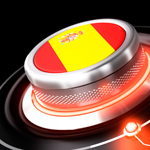
The course is aimed at students who wish to enhance their communication skills in Spanish. To achieve this goal, new grammatical structures will be introduced, and others that have already been acquired by the student will be strengthened. This course requires students to have passed level B (intermediate level according to the Common European Framework of Reference for Languages) in order for them to be able to learn about the contents explained in class with no difficulty. The contents of the course will include four skills: speaking, writing, listening and reading comprehension. Students will therefore acquire greater confidence and independence, enabling them to express themselves in Spanish fluently. Cultural and social aspects will also have great presence and they will be integrated into the communication process.
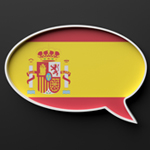
This course is aimed at students who wish to improve their communication skills in Spanish. To achieve this goal, new grammatical structures will be introduced and others that students have already acquired will be strengthened. This course requires students to have passed level A. Thus, students will acquire greater confidence and independence enabling them to express themselves in Spanish with some fluency. We will focus on past tenses for the linguistic content.
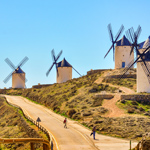
The course is aimed at students who wish to learn about the life and work of one of our most renowned writers, Miguel de Cervantes. Students will learn about Cervantes’ most relevant works, in addition to his literary influences and characteristics within the context of the Spanish Golden Age. The course will include a selection of readings from his different works, with particular emphasis on his famous Don Quixote.

Cinema is one of the most popular artistic representation due to its expressive power and narrative ability. Film productions allow us to gain knowledge of and come closer to the Spanish reality from two perspectives: as a historical document and as an aesthetic expression. In this course, students will learn about the Spanish by filming speech, taking as reference important directors and films in the history of Spanish cinema. Moreover, the course aims to make a journey through the history of Spain, from the Civil War until today, taking as reference film productions on this historical period. Spanish film productions are studied from a multidisciplinary perspective to analyze the most relevant historical periods of contemporary Spain. In addition to studying and undertaking critical analysis from different perspectives, students will have the opportunity to acquire the specialized language used in cinema and historiography, enabling them to improve their speaking and to be able to write down their ideas in Spanish, as well as appreciating cinema as a form of artistic and cultural expression that reflects the history of Spain.
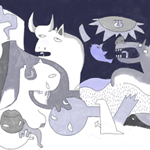
The course provides an overview of Spanish art history from the early days (Cave of Altamira) to the avant-garde of the twentieth century. While the course offers a general panoramic overview, more emphasis is placed on the great masters of painting such as El Greco, Velázquez, Goya and Picasso, whose skills and abilities set the course of pictorial art by turning Spanish painting into the soul of modern art.

The transformations that have occurred in relation to new technologies, ways of working (online), globalization, development and cheaper transport, among others, have led to a greater mobility of expatriates and students living in other countries. This requires that these groups be trained in the intercultural field. This is a course that explores and brings students closer to communication and culture, especially in the context of international business.
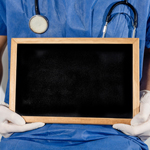
This course requires to be studying a major in biology, medicine, nursing, pharmacy or psychology and to have a B2 Level of Spanish. Teaching will take place both in class and in hospitals. A series of activities and tasks will take place in the classroom with a communicative approach and real-life and health-related situations will be proposed. Special attention will be placed on acquiring terminology in this context, on oral expression in specific situations and on writing, without forgetting cultural elements.

This course provides an overview of the Spanish media (print, advertising, film, radio, television and social networks) as well as the vision of Spain today that is offered by these media. While the classroom approach tries to be generalist, more emphasis is placed on the media and individual and current work with specific features that are now part of the history of Spanish communication.
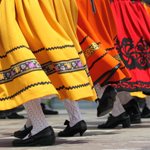
This course aims to improve students’ oral and conversational skills. The course provides both linguistic and cultural knowledge. Units follow a linguistic progress for this which goes from the verb to be; ser / estar / haber; prepositions; reflexive verbs; direct and indirect pronouns; irregular verbs; past perfect / imperfect / indefinite; simple future; the conditional tense and the present subjunctive. These grammar points are studied in a context that is related to cultural aspects in Spain. Thus students will see topics such as; the parts of the house, giving directions, using public transportation, food, fashion, a doctor’s visit, cultural festivals: Fallas, bullfighting, Christmas and Easter, among others.
Note: Enrolled students will get a password to access the Blackboard virtual classroom and the content, materials and information of courses.

